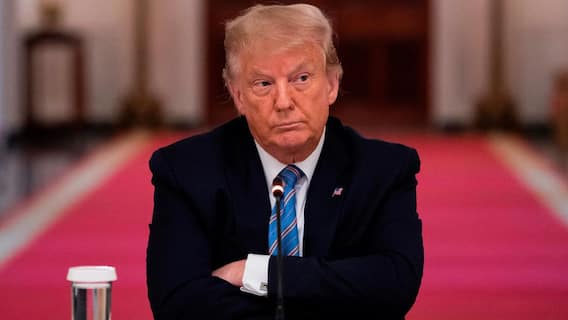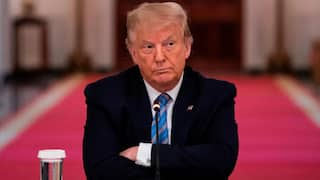Jimmy Carter, Longest Lived US President, Dies At 100
Former US President Jimmy Carter, a renowned peacemaker and human rights advocate, passed away at 100.

Former United States President Jimmy Carter died at the age of 100, his family announced on Sunday. The 39th US President was known as a broker of peace in the Middle East who also tirelessly advocated for global health and human rights.
“My father was a hero, not only to me but to everyone who believes in peace, human rights, and unselfish love,” said Chip Carter, Jimmy's son, in a statement.
“My brothers, sister, and I shared him with the rest of the world through these common beliefs. The world is our family because of the way he brought people together, and we thank you for honouring his memory by continuing to live these shared beliefs," he added.
US President Joe Biden expressed grief saying Jill and he "lost a dear friend." "This is a sad day, but it brings back an incredible amount of good memories. Today, America and the world, in my view, lost a remarkable leader. He was a statesman and humanitarian. And Jill and I lost a dear friend," Biden said.
I've been hanging out with Jimmy Carter for over 50 years. I had countless conversations with him over those years...What I find extraordinary about Jimmy Carter though, is that millions of people all around the world, feel they lost a friend as well, even though they never met him," he said.
"And that's because Jimmy Carter lived a life measured not by words, but by his deeds...He worked to eradicate disease not just at home, but around the world. He forged peace, advanced civil rights, human rights and promoted free and fair elections around the world...," Biden added.
Carter, a Georgia Democrat, was the longest-lived president in US history. His stint in the White House was limited to one term before he was beaten by Ronald Reagan in 1980. He spent the decades following his presidency focusing on international relations and human rights, efforts that won him the Nobel Peace Prize in 2002.
Carter underwent a series of hospital stays before and on February 18 last year, his family said he had chosen to "spend his remaining time at home," in hospice care with loved ones. The decision had “the full support of his family and his medical team”, a family statement said.
In a media interview in June this year, Carter's eldest grandchild Jason Carter said the former president was not awake every day but was “experiencing the world as best he can” as his days were coming to an end.
'Jimmy Who?'
A devout Christian, Carter took office in 1977 as "Jimmy Who?" and his unfamiliarity with Washington was seen as a virtue after the Watergate and Vietnam War years.
However, hopes for his presidency were dashed by economic and foreign policy crises, starting with high unemployment and double-digit inflation and culminating in the Iran hostage crisis and the Soviet invasion of Afghanistan.
Carter faced backlash from Republicans for failing to halt the economic slide while he prepared for re-election in 1980, and the Iran hostage crisis became a focus for Americans. Of the 52 Americans held hostage, eight servicemen were killed, and the rest were released on January 20 1981, hours after Carter left office prompting speculation that Republicans made a deal with Iran.
He was a critic of the 2003 Iraq invasion drone warfare, warrantless government surveillance and the prison at Guantánamo Bay. He received praise and criticism for his involvement in efforts for Middle East peace, advocating for a two-state solution.
James Earl Carter Jr was brought up in Plains, Georgia. He was a graduate of the US Naval Academy and rose to the rank of lieutenant and worked on the nascent nuclear submarine program. In 1953, after his father's death, Carter took up peanut farming.
He outlived two presidents, Reagan and George HW Bush.
Carter's state funeral, including all public events and motorcade, is yet to be announced.
Trending News
Top Headlines






































